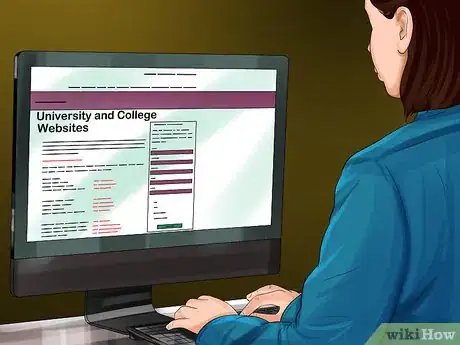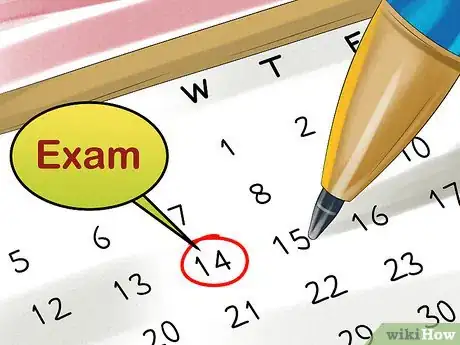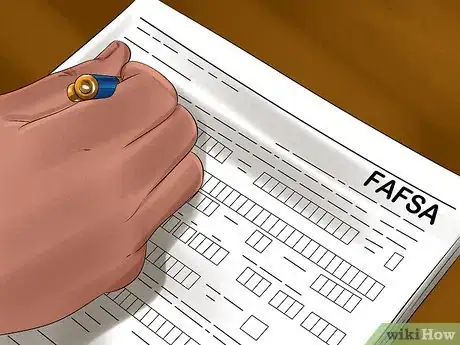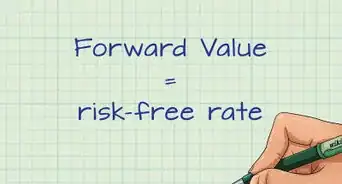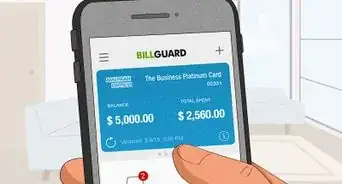X
This article was co-authored by wikiHow Staff. Our trained team of editors and researchers validate articles for accuracy and comprehensiveness. wikiHow's Content Management Team carefully monitors the work from our editorial staff to ensure that each article is backed by trusted research and meets our high quality standards.
This article has been viewed 37,055 times.
Learn more...
Getting certified in human resources can help jump start your career, so of course it's something you'd want to do. The first step is to figure out what kind of program you want. Then you can complete the certification through a credentialing institute like the HR Certification Institute or through a college.
Steps
Part 1
Part 1 of 3:
Finding a Program
-
1Use the HR Certification Institute for self-directed certification. The HR Certification Institute is one of the main credentialing organizations for human resources in the U.S. They offer a variety of certification programs that you can complete through their website at https://www.hrci.org.[1]
-
2Check with your local community college for a cheap option. Community colleges offer an affordable way to get your certification. Look at the offerings for certifications on your local community college websites.
- Generally, courses are anywhere from a couple of semesters to an associate's degree. It can vary greatly by college.
- You might also find programs at 4-year universities, but those are more likely to be a bachelor's degree with a focus in HR certification.
Advertisement -
3Look at online colleges for convenience. Many online colleges offer HR certification. These programs can be good if you don't have time to go to physical classes. However, many of these schools are for-profit, which sometimes doesn't hold as much weight as a traditional university or other certification organizations.
- It's up to you whether you think a for-profit university is a good idea. Nonetheless, keep in mind that this certification may not hold as much weight as one from another university or a credentialing program.
- It may not be easy to tell which universities are for-profit. However, they're usually the ones that have campuses across the country, such as University of Phoenix, DeVry University, Kaplan University, and Capella University. If you're not sure from the university's website, look it up elsewhere to find out if it's for-profit or not.
Advertisement
Part 2
Part 2 of 3:
Completing Certification through the HR Certification Institute
-
1Pick a certification exam. The HR Certification Institute offers a variety of self-directed certification programs to choose from, depending on where you are in your career. This program focuses on certifying you based on your knowledge, rather than putting you through courses. You'll need to pick one before moving ahead with certification. Most require some combination of HR experience and a degree. It's best if the degrees are in HR management, but it's not a requirement.[2]
- For instance, the Associate Professional in Human Resources is for people who are starting out. You can even take this certification right out of high school. You can purchase study materialhttps://www.hrci.org/certifications/individual-certifications/aphr</ref>
- The Professional in Human Resources requires a combination of experience and education. You need 4 years of experience if you have a high school diploma, 2 years of experience if you have a bachelor's degree, and 1 year of HR experience if you have a master's degree.[3]
- The Senior Professional in Human Resources requires even more experience. You need 7 years of HR experience if you have a high school diploma, 5 years if you have a bachelor's, and 4 years if you have a master's.[4]
-
2Study for the exam to gain your certification. This certification is basically just an exam you take to prove your knowledge. Before you take the exam, you'll need to study up for it. The HR Certification Institute offers both preparation materials for free and for purchase. If you wish, you can even bundle your test exam and preparation materials to save a little money.[5]
- For instance, you can get exam outlines for free at https://www.hrci.org/how-to-get-certified/preparation-overview/exam-content-outlines
- However, you'll need to pay for practice exams.
-
3Schedule the exam. Schedule the exam at your convenience with Prometric, the company that proctors the exams. You'll need to schedule the exam at one of the many testing centers, which are located in most major cities. You can use Prometeric's site to search for a testing center.
- You can take the exam most weekdays, as long as you make an appointment before the center fills up.
-
4Take the exam. Arrive at the center at least 15 minutes ahead of time. Bring a government-issued ID with you, such as a driver's license or passport. You will use a computer to take your test.
- Keep in mind that all of your personal belongings must be put in a locker issued by the test center. In fact, you can have nothing in your pockets except your ID and your locker key.
Advertisement
Part 3
Part 3 of 3:
Getting Certification through a College
-
1Apply for the program. Just like any program at a college, you'll need to apply to go there. Typically, applications will require information such as your high school transcript and GPA, SAT scores (in some cases), and biographical information. Most for-profit schools and community colleges are not difficult to get into. In fact, some community colleges have open admissions policies, meaning almost anyone who applies gets in.[6]
- You can also enroll for financial aid at the same time. You may be able to get student loans to help you pay for school. You'll need to fill out the FAFSA, the application for federal student aid.
-
2Enroll in the required coursework. Once you apply and are accepted, you'll need to enroll in classes. You should have a detailed plan from the school stating exactly what classes you need to take. If you are confused about what to do, you should have a school-assigned advisor you can discuss questions with.[7]
- To enroll, you typically go online during the enrollment period and choose your classes, especially if you are in an online program. For brick-and-mortar universities, you can also visit the registrar's office.
-
3Complete the coursework. Usually, if you're getting a certificate through a college, it will require coursework. How many semesters you'll need to complete depends on the program. Some programs have as few as 18 to 27 hours or 6 to 9 courses. However, others are closer to an associate's degree.
- In some cases, you'll need to complete the coursework in person. In other instances, you can complete it online. It depends on your university. Even if you complete it online, you may need to come to the college for orientation or a few other in-person meetings.
- Check with your program to determine the grades you need to pass the program.
-
4Apply for graduation. Often, once you've completed the coursework, you'll need to apply for graduation. Basically, you're just asking the school to verify that you've completed the program. You'll likely need to pay a fee, as well. Visit your school's website to find out how to apply for graduation at your school.
Advertisement
References
- ↑ https://www.hrci.org/about-hrci/overview
- ↑ https://www.hrci.org/about-hrci/overview
- ↑ https://www.hrci.org/our-programs/our-certifications/phr
- ↑ https://www.hrci.org/our-programs/our-certifications/sphr
- ↑ https://www.hrci.org/how-to-get-certified/build-your-own-bundle/overview
- ↑ https://www.usnews.com/education/community-colleges/articles/2015/02/06/frequently-asked-questions-community-college
- ↑ http://www.rcc.edu/departments/business/Pages/humanresources.aspx
About This Article
Advertisement

